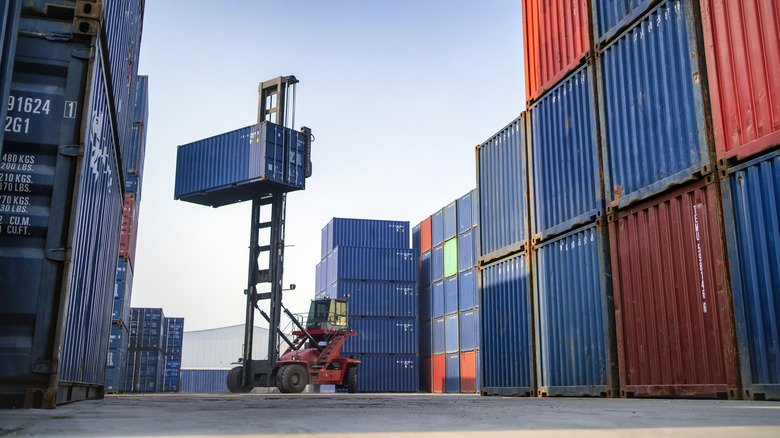How The Port Strike Could Impact Your Household (& How To Prepare)
We may receive a commission on purchases made from links.
On October 1, 2024, dockworkers belonging to the International Longshoremen's Association (ILA) officially declared a strike, bringing roughly 36 Eastern and Gulf Coast port operations to a grinding halt. The union members hope that the protest will result in better employee treatment, higher wages, and a total ban on automated machinery such as cranes and trucks.
But as the strike drags on, many Americans have begun to worry about how the frozen ports might affect the economy and, more specifically, shoppers' access to any imported goods. Unfortunately for consumers, some of the most high-demand household items that sold out in 2022 may disappear from shelves again. Bananas, seafood, alcohol, pharmaceuticals, and auto parts are expected to be some of the impacted products that consumers will notice right away. However, if the strike continues long enough, shortages — and the panic caused by them — could affect other basic household items like paper products, furniture, electronics, and holiday decorations.
West Coast residents can't afford to be complacent either; these port strikes won't just have consequences for those in the eastern half of the country. While western ports are still operating at this time, they too will likely experience backlogs and delays as shipments are rerouted. No matter where you live, if you're working on a home project, shopping for new home décor, or just stocking up on household essentials, your purchasing options and product availability may be significantly limited by the port strikes.
Here's a deeper look at the products that will be most affected and how you can ensure your household remains calm, clean, and comfortable for as long as the strike continues.
Purchase necessities but avoid panic-buying
Before you can appropriately plan for a disaster of any kind, it's important to understand what might happen and how it could affect you. Foods with a short shelf life — like bananas and seafood — could disappear temporarily, but rest assured that there will still be plenty of food to go around for a while yet, thanks to our own domestic agricultural resources. If the strike holds out for many weeks or months, prices may increase for goods that must be rerouted into West Coast ports. Wood products from Asia and South America are frequently received at ports in the Gulf, so a lack of these materials could limit the availability of new furniture, paper, wood pulp, and other wood-based products. As existing stock sells out, you'll likely see more bare shelves on items like plywood, household chemicals, electronics, and machinery parts. Christmas trees may also not be transported and stocked in time for the peak holiday season.
Social media videos of wiped-out shelves are already circulating, but sometimes these "shortages" are not actually caused by a lack of available products. Instead, they are due to consumers panic-buying more than their household needs. While paper is on the list of potentially affected resources, most experts are not anticipating a genuine pandemic-level shortage of toilet paper or other paper products. As you prepare your home, remain calm and restock your normal amount of paper products, food, and essentials. If you're still worried, now could be a great time to try a product like The Useless Brand Reusable Paper Towels or even install a bidet in your bathroom. If strikes continue long enough to impact new furniture or holiday items, consider buying secondhand, revamping pieces you already have, or adding a touch of holiday magic with DIY décor.

